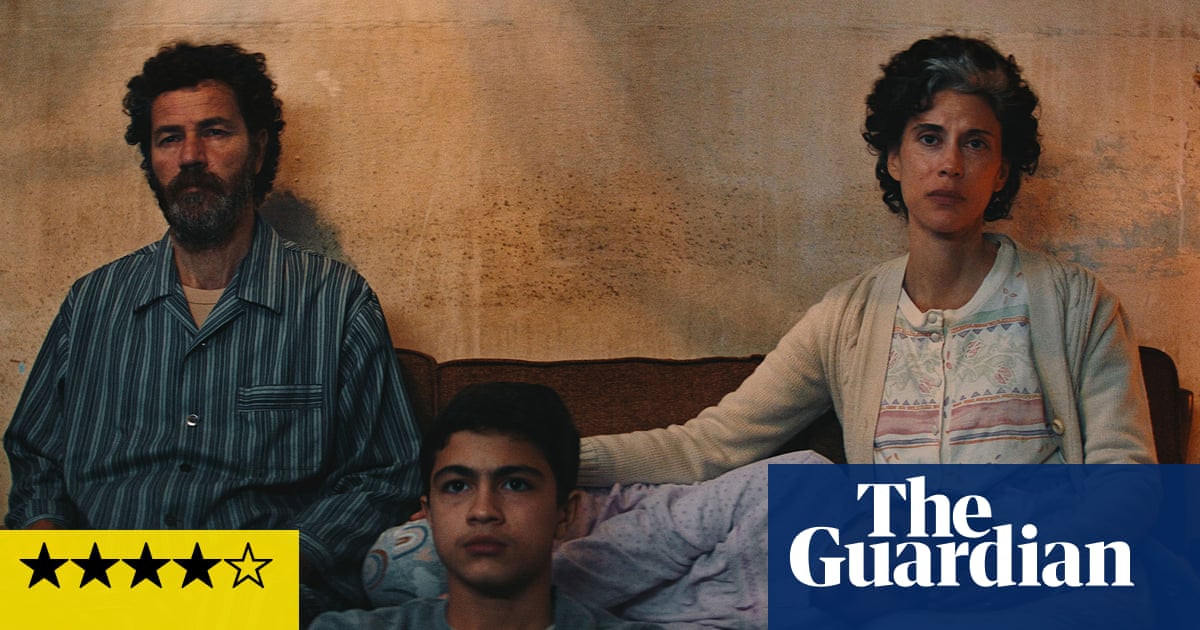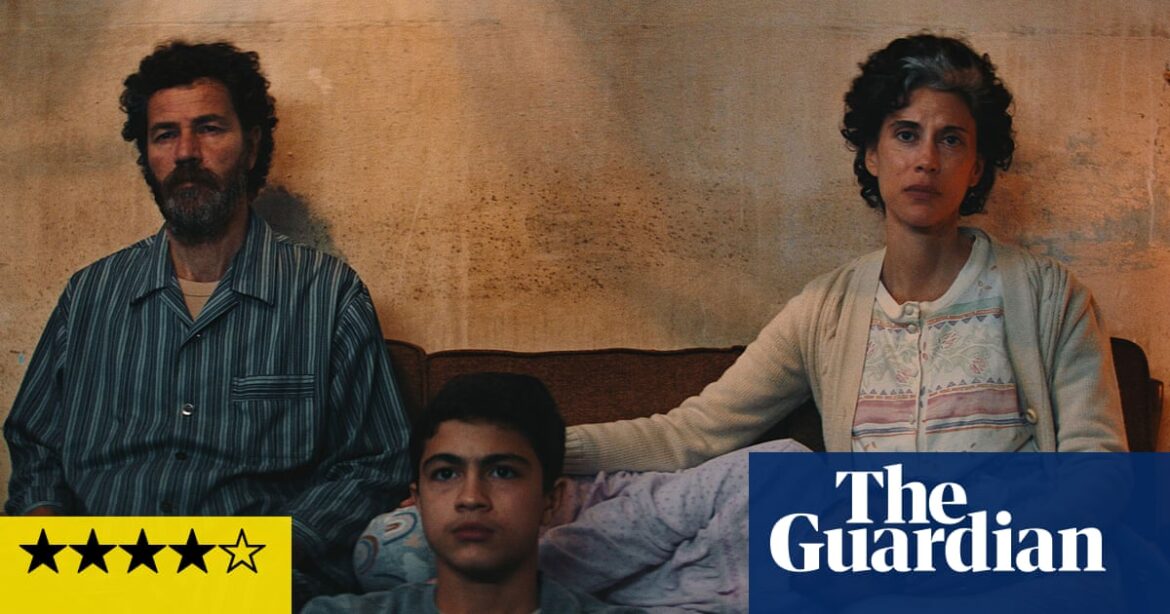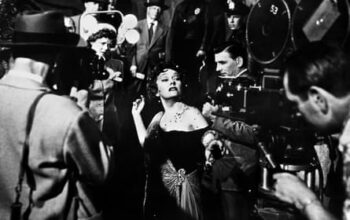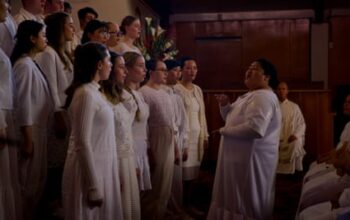
All That’s Left of You, Palestinian American film-maker Cherien Dabis’s wrenching portrait of intergenerational trauma, begins its 75-year tale of displacement as the great epics do, in medias res.
A teenage boy chases a friend through the narrow streets of Nablus, a blur of surefooted youth amid the sun-bleached, nobly dilapidated homes. In a series of kinetic, precise shots, Dabis sketches a vibrant map of the occupied West Bank in the late 80s, where humiliation and hope coexist in a dangerous pressure cooker. Noor (Muhammad Abed Elrahman) bounds from an auntie’s kitchen to a bustling fruit market to a protest against Israeli soldiers at a checkpoint; he summarily joins the chant of intifada (“uprising”). Then, the soldiers open fire.
Cut to an aged Dabis as Noor’s mother Hanan, speaking to camera: “You don’t know very much about us. It’s OK, I’m not here to blame you, I’m here to tell you who is my son. But for you to understand, I must tell you what happened to his grandfather.”
The framing for this Arabic-language family saga, spanning from 1948 to the near-present, evinces the film’s primary modes – lived-in, propulsive, multifaceted drama with a fraught, ardent sense of place, and heart-on-its-sleeve, direct plea for recognition.
The former is more effective than the latter, the foibles of specific people being generally more compelling than straight-up messaging, no matter how right or relevant. (The film was in pre-production in Palestine during the 7 October attacks and Israel’s subsequent invasion of Gaza, forcing filming to relocate from Jericho to Cyprus and Greece.)
It is, as ever, tricky to evaluate the aesthetic merits – how much a movie convinces, transfixes or moves – for a film about people who have been so routinely and thoroughly denied recognition of their basic humanity. There should not be the need to mount a case. Dabis nevertheless makes it, returning to the original trauma: the 1948 Nakba, or the forced removal of around 750,000 Palestinian Arabs by Zionist paramilitaries, with the help of the colonial British, for the formation of the state of Israel.
This section, in which Noor’s grandparents Sharif (Adam Bakri) and Munira (Maria Zreik) lose their stately home and family orange grove in Jaffa and Sharif spends a year in a prison camp, has the clear moral high ground and the glossy sweep of history, noble characters buffeted by the tide of injustice.
There’s weighty, evocative pathos, but also a blunt sense of utility – film being used as an educational medium, dramatizing monumental tragedy for audiences perhaps not familiar, especially not cinematically, with the Nakba, the British mandate or the massacre at Deir Yassin, reports of which frighten Sharif’s young son Salim.
But as the years go by and the trauma festers, the film grows into something thornier, surprising, beautifully textured and deeply moving.
Dabis, the writer/director of 2009 Sundance breakout Amreeka, smartly lingers on the traditions, adaptations and mundanities of the family’s tenuous life in the West Bank – the dances at Sharif’s daughter’s wedding, the lessons the adult Salim (Saleh Bakri) teaches in school, the propaganda videos for the lost homeland watched by a misty-eyed elderly Sharif (Mohammad Bakri) and young Noor.
Always, the dehumanizing drudgery of occupation. All That’s Left of You lulls viewers into the fragile, fractured peace of one family – Salim’s insistence his father let go of the past, Sharif’s insistence that Noor understand their cause, Noor’s insistence that his father finally fight back – for a good, fascinating while before it collapses. Nearly half of the film’s 145-minute runtime elapses before we return to the teenage Noor’s injury during the First Intifada, which prompts a deadly bureaucratic nightmare, a family reckoning, unimaginable decisions and reminders of common and complicated humanity, all expertly and understatedly rendered by Dabis and Saleh Bakri.
Broad sentiments and heavy drama abound, but not so much pablum – especially in the middle sections, the film glances more provocative, unanswerable, semi-profound questions: how trauma calcifies into resentment, how much is worth fighting for, the obligations of family safety versus morality, the responsibilities of those who leave and those who stay. How a boy processes state-enforced, routine humiliation of his father. How oppression fractures faith into recriminations among each other. And also, how life goes on, despite it all.
-
All That’s Left of You is screening at the Sundance film festival and is seeking distribution
Source: theguardian.com



